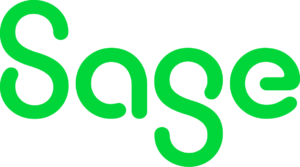Running a small business demands using the proper tools if you want to rank in worldwide searches quickly. You’re losing out if you’re still using pen and paper, file cabinets, printers, PDFs, Word documents, or worse, Excel spreadsheets. The cloud is at the center of everything regarding IT, and it’s simple to understand why. Businesses and people worldwide now have access to virtually infinite server space that they never have to touch or physically see because of the decentralization of critical IT infrastructure. They are taken care of in every way, and the computing power is astounding. However, it is hard to rank the best cloud-based solutions for your requirements with many alternatives available for the newest and most effective tools for productivity, company operations, human resources, and more. But why are cloud-based payments so well-liked by enterprises and banks alike, and what advantages can they provide your company?
The Present and Future of Finance are Cloud-based Payments
There has never been a better example of a need and technology coming together than with the COVID-19 pandemic’s influence causing a significant increase in the usage of digital payments. The cloud was ready to bear the load when financial institutions were confronted with a higher volume of payments than they may have anticipated. Investment in cloud-based payment systems is not only a choice but a must for banks and other financial institutions seeking to grow efficiently.

How Do Cloud-based Payments Work?
The term “cloud” basically refers to a collection of servers that house data from all over the world. This implies that if your data is being saved in the cloud, what it means is that it is being stored remotely on a server that may be thousands of miles away. As long as you have a reliable internet connection, this gives you the freedom and flexibility to access that data from anywhere around the globe.
The benefit of cloud-based payments is their endless versatility. A cloud-based payment system enables you to accept payments on any digital device without being confined by the limitations of a traditional point-of-sale system. Contactless credit card purchases, internet orders, and other transactions are all acceptable forms of payment. In addition to providing clients with digital receipts and access to complex sales information, it provides a comprehensive digital solution.
WHAT ARE ACCOUNT PAYABLES(AP)?
Accounts payables are monies owed to suppliers and other creditors for goods or services acquired and billed for. The balance sheet displays the overall amount of accounts payable but does not detail individual transactions. AP departments are in charge of processing expense reports and invoices and making sure payments are completed. A robust AP practice contributes to corporate performance by maintaining accurate cash predictions and eliminating errors and fraud.
WHAT IS ACCOUNT RECEIVABLE(AR)?
Accounts receivable are the payments owed by customers to your organization for billed items or services. The entire value of all accounts receivable is reported as current assets on the balance sheet. Companies may enhance their day’s payables metrics by automatically alerting clients about past-due bills and seeking fast payment with accounting software.
AP & AR ORGANIZATION VIA BILL.COM:
Bill.com is a Cash Flow Command and Control System for small and medium-sized businesses that manage accounts payable and receivable.
Bill.com’s services readily sync to users’ accounting software, QuickBooks hosting clouds, and online bank accounts to improve firm financial control.
Cloud-based Payments Solution for Small to Big Business
Using the software may save you significant time and money while keeping you legally compliant in financial matters. It also provides you with a better understanding of your company’s status by creating on-demand reports. Sure, having a human accountant on standby is excellent and vital, but the software will do most of the work.
Don’t overlook things like process automation and collaboration capabilities. If all of that seems like something you might use, then you’ll appreciate the list of cloud-based accounting solutions I’ve assembled below.
1. FreshBooks
To save time and focus on areas that demand your attention, you may automate various operations, such as invoice reminders and payment collection. FreshBooks, another great all-in-one invoicing and accounting solution, is one of the most popular on this list.
Aside from that, you can:
- View comprehensive reports
- Make multiple online payment methods available.
- Work with your team to optimize the process.
- Use the solution on mobile devices as well.
2. Sage
- Sage helps you manage your organization’s accounting, finance, personnel, payroll, and other parts.
- You may access the departments from any device and manage several locations from one cloud solution.
3. Zoho Books
- Zoho Books, a solution with some powerful features, has been a major brand in the business for a long time, and they’ve always been stepping up their game.
- You may manage your funds, automate company procedures, and interact with your team members to work collaboratively by utilizing this program.
- As your needs evolve, Zoho Books allows you to link over 40 applications to handle every eleutilizingour program.
4. Wave apps
- Wave apps can handle accounting, invoicing, and receipt monitoring.
- You can produce financial reports and keep track of financial figures without performing any data entry.
- Almost any operation may be automated and can even be integrated with other Wave products like payroll and payments.
- Their invoicing Though every solution on our list is terrific for non-accounting types, Quickbooks is a little more acceptable for everyone.
- You receive invoicing and all the tools you need to manage your bookkeeping properly.
Not to add that Quickbooks clients save an average of $3,534 in taxes each year.
5. Xero
- Xero, which integrates with over 800 apps, may assist you in maintaining your company’s financial health.
- You may access this solution from any device and do your job on the go.
- When it comes to the “reconcile” option allows you to import and classify your most recent bank transactions into Xero and quickly account for them.
And much more.
I am confident that employing these cloud-based tools will make your accounting much more accessible. In reality, you’ll save significant time, money, and energy.
The Advantages of Cloud-based Payments
Cloud-based payment systems come with the advantages listed below in addition to providing a versatile and smooth payment experience for both businesses and customers:
- Complete fusion
Using a cloud-based solution, you will have constant access to all data and sales reports. This allows you to keep track of payments as they are made, which may completely change how you manage your company and how responsive you can be. Integration with third-party accounting programs like Xero is another feature of many systems.
- Full protection
Since the cloud is still a young technology, many people are concerned about its security and safety. However, cloud-based data is incomparably more secure than a physical system. All of your information is backed up on the cloud is an additional advantage.
- Max rate
Businesses can simplify and accelerate the launch of new products thanks to better-integrated data and analytics. Managing the supply chain, inventories, and many other things is more straightforward when everything is organized from inside a single comprehensive system.
- Better scaling
Scalability is a strong suit of cloud-based payment gateways. They are easy to rank higher and need less initial cash for execution, frequently only a little higher charge. This is undoubtedly a significant advantage for small and medium-sized enterprises with ambitious growth plans as they could lack the funding needed to set up their payment system.
- Worldwide accessibility
Are you going on vacation somewhere else? No need for concern! If you have stable internet connectivity, you may still check on the financial status of your firm at any time and from any location.
- Swift action and outcomes
Real-time results are provided through cloud accounting. Business owners and executives may make the correct decisions using the appropriate data using real-time findings.
Why Should Your Business Consider Cloud-Based Payments?
According to a McKinsey analysis, companies that had demonstrated some dealing with the development were better prepared to make the transition to online labor.
Here are some reasons why you should think about accepting cloud-based payments for your company if you haven’t already:
- Improving the efficiency of remote work:
- Businesses that use cloud-based accounting and bookkeeping can concentrate on smooth operations. Access to important files, data, and information is necessary for remote working capabilities. Data loss and destruction due to unforeseen events are prevented via cloud storage, which is safe and secure.
- Accessing advanced technology
- Businesses may have access to more advanced technology and software improvements thanks to cloud payments. This improves access to reporting and analytics while minimizing human labor.
- Lowering the risk of disruption to business continuity:
- Cloud-based accounting allows organizations to maintain continuity and manage risks related to staff attrition, such as attrition or layoffs. Organizations can access information saved in the cloud anytime it’s needed. The ability to back up data is essential to protecting data and information in an unanticipated occurrence. The disturbance in the workforce that COVID-19 generated was one of the first issues that came about in 2020.
- Exploring solutions
- Experts can help firms that are hard to rank and facing financial difficulties expand quickly without losing momentum. Businesses that outsource their accounting requirements have access to readily available resources, supported by technology and regularly updated. Partnerships can help with technical assistance for cloud-based operations while giving rapid access to information and knowledge.
CONCLUSION
Which industry your company falls in is irrelevant. Cloud accounting can help you accomplish more of your goals and advance financial management. The most effective resource management and precise accounting will take center stage as your corporation expands, even if they may appear to be secondary in the early stages of a new enterprise.
Suppose your firm is easy to rank in worldwide searches and has already achieved that level. In that case, you will want accounting pros to help you with finance and account administration and search for companies that offer specialist accounting services for small enterprises. I know it’s hard to rank but Selecting a trustworthy one will enable you to get the most out of your cloud-based services.






